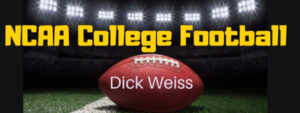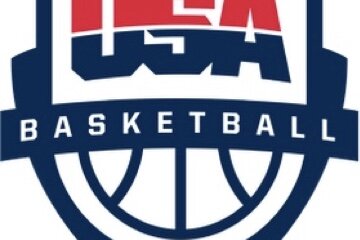PHILADELPHIA –NCAA president Charlie Baker can see the future of college athletics.
And it looks nothing like the past.
The era of the student athlete and pure amateurism has been over for a while. But Baker wants to take it a step farther, proposing changes that will allow the wealthiest schools to break away and form a new division that would make their scholarship players professionals. His proposal would allow those schools to pay athletes directly via name, image and likeness deals and use a trust funds of at least $30,000 per year to pay at least half of their athletes. The proposal would have to comply with Title IX views, which dictate that there must be equal opportunities for men and women.
Baker’s proposal would require schools that want to be part of the new tier of Division I to pay athletes tens of thousands of dollars per year on top of their athletic scholarships. He also suggested Division I schools should bring NIL compensation for their athletes in-house though group licensing deals and remove any limits on educational benefits schools can provide for athletes. The schools would be allowed to create their own set of rules for recruiting, transfers, roster size and a wide range of other polices.
“Some people are going to say you’re going too far and, people will say but you aren’t going far enough,” Baker said.
Currently there are 350 schools that list themselves as Division I.
But this will definitely create a wider gap between the haves and have nots.
Consider this: Ohio State’s revenue from last year was $259 million. Neighboring Ohio U, which competed for the same NCAA championships, made just over $25 million in revenue. Who can afford to pay its athletes more?
Athletic spending is out of control.
Alabama football coach Nick Saban is making $11,470,000 and eighth other college football coaches– Dabo Swinney of Clemson, Kirby Smart of Georgia, Ryan Day of Ohio State, former Michigan State coach Mel Tucker of Michigan State, Brian Kelly of LSU, former Texas A & M coach Jimbo Fisher, Mark Stoops of Kentucky and Josh Heupel of Tennessee– were all making at least $9 million in base salary when the season began. Texas A & M just paid Fisher a $75 million dollar buyout to leave. It’s an armed race out there but there are growing questions about why some of the money that goes to coaching salaries, bloated administrative staffs and opulent facilities isn’t being shared with the athletes.
A small percentage of athletes are making six figures in NIL money. Others have used the portal to transfer to schools where they feel they have the best chance to get maximize their endorsement money. All three quarterbacks in the Heisman race — Jaylen Daniels, Bo Nix and Michael Penix– are transfers.
Baker believes 100 schools will consider opting into the new subdivision. There are 133 schools in football’s top tier. Baker’s proposal seems targeted at about half of those schools that compete in the Power 5 conferences. The number of power conferences is shrinking to four after recent realignment decimated the Pac 12, but it still encompasses 65 schools. Baker said the differences in budget sizes across Division I, and even into Division II and III, have traditionally caused conflicts in the NCAA. He noted athletic budgets range from $5 million and $250 million annually, with 59 schools spending over $100 million annually and another 32 spending over $50 million.
He said 259 Division I schools, however, spend less than $50 million on their athletic programs. He wants the schools that have the ability to spend more on their athletes to be free to do so.
But there is growing concern if this proposal is put into action some schools will be shut out of championship events or lose out on revenue. We could see this new sub-division forming their own championship events and signing lucrative TV contracts with the networks, so they won’t have to split revenue with the have nots. We could also see mid-major programs limiting scholarships in football, gutting athletic administrations, dropping sports or turning minor sports into club teams to attempt to keep pace if they opt to play at the highest level.
it’s a brave new world out there.














